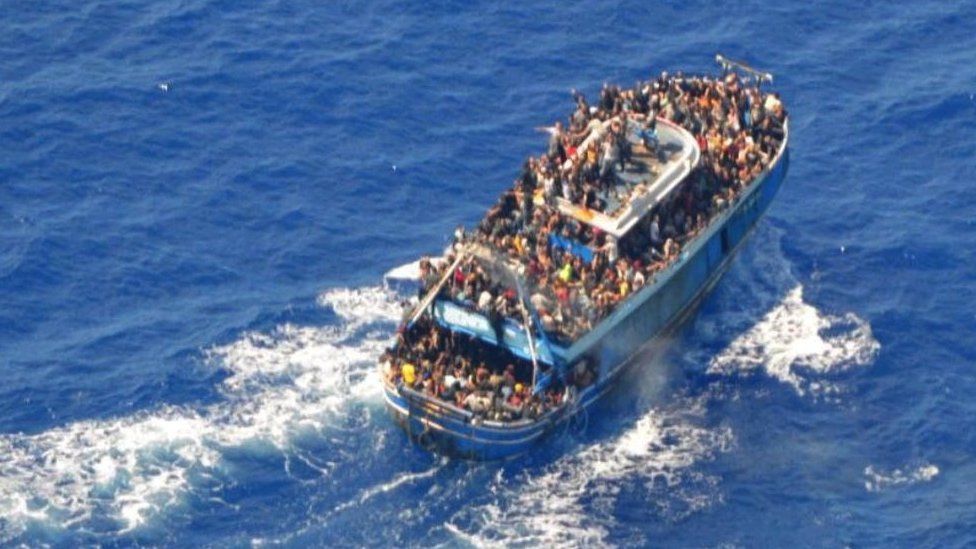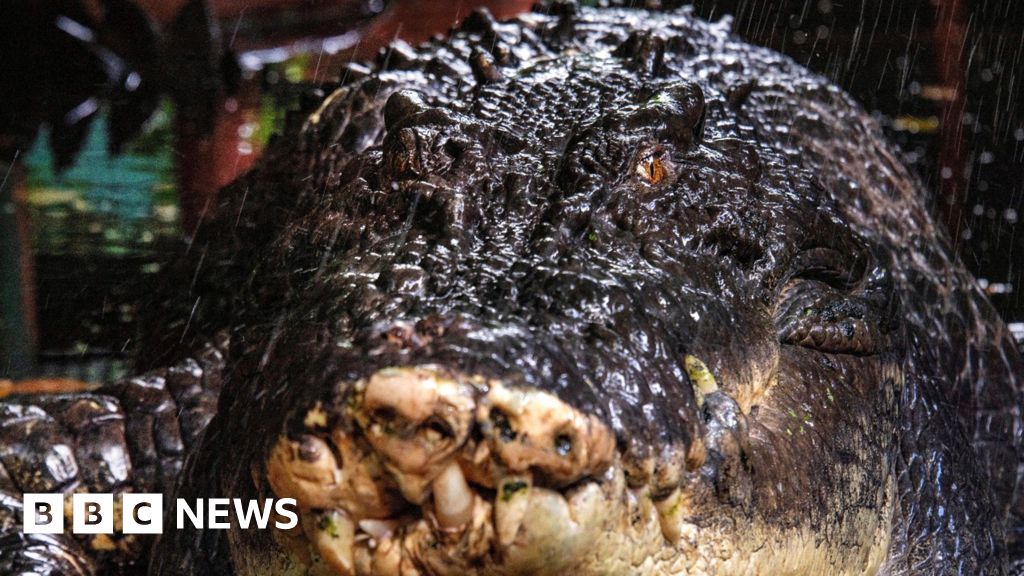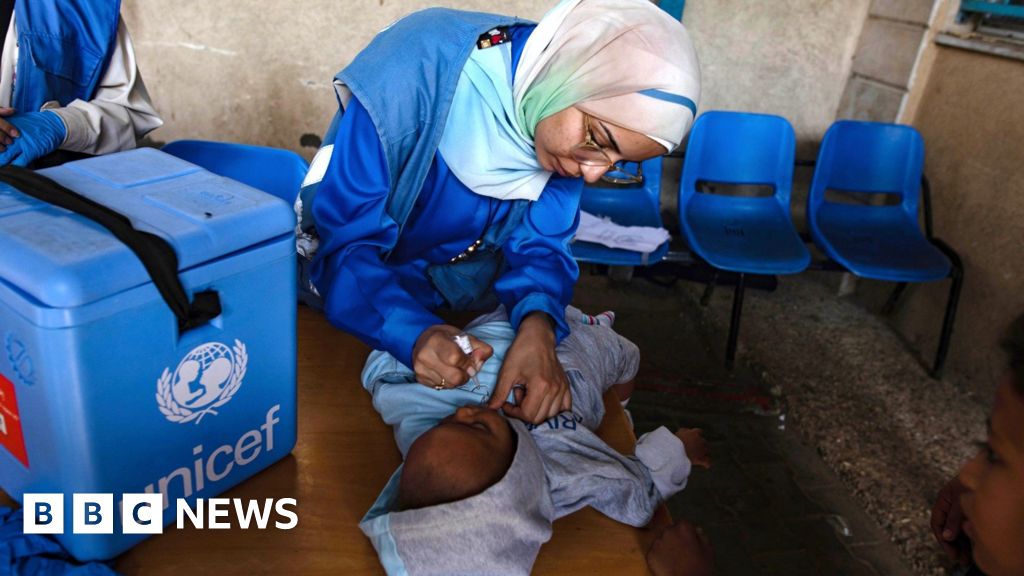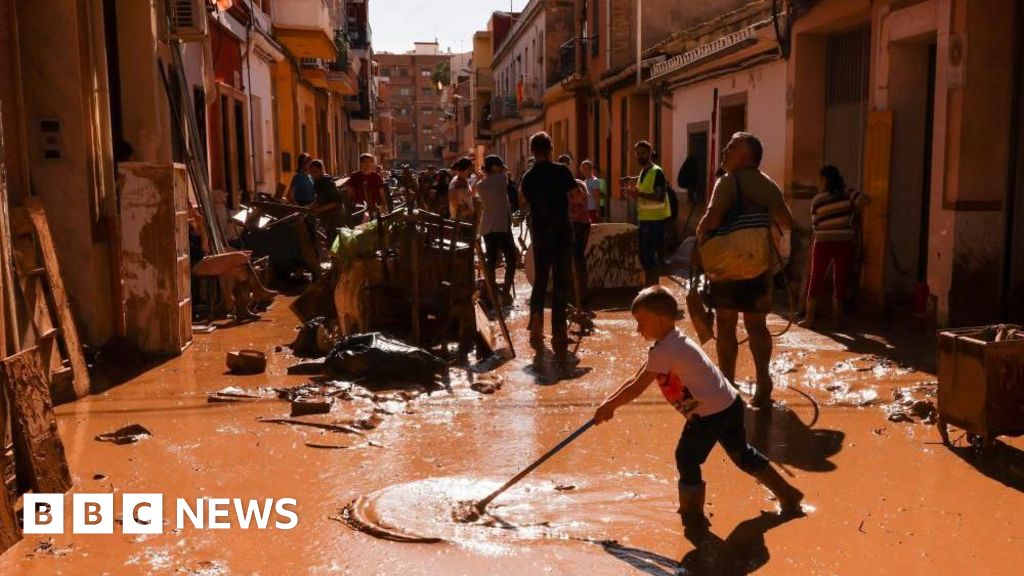ARTICLE AD BOX
 Image source, Greek Coast Guard
Image source, Greek Coast Guard
There were only 104 survivors of the shipwreck, one of the worst disasters in the Mediterranean in years
By Alaa Ragaie
BBC News Arabic
Four people who survived the migrant boat disaster off the coast of Greece say the actions of the Greek coastguard caused the crowded fishing vessel to sink.
It's estimated that up to 750 people, mostly from Pakistan, Syria and Egypt, were on board when the boat capsized on 14 June. It was one of the worst humanitarian disasters in the Mediterranean in recent years - 104 people survived and 82 bodies have been recovered.
We are not naming the four survivors for their own safety but have verified their identities through more than one source.
Some of the men who spoke to the BBC over the phone are being held at the Malakasa refugee reception centre, 40km (25 miles) north-east of the Greek capital Athens, while others have now left the complex.
No media are allowed to enter the reception centre which is ringed by barbed wire.
Image source, Reuters
Image caption,Survivors of the shipwreck have been taken to the Malakasa refugee reception centre near Athens
"We thought they [the Greek coastguard] would rescue us but instead they sank the boat," an Egyptian survivor told us.
He said the Greek coastguard was towing the vessel when it sank in one of the deepest parts of the Mediterranean, about 80km (50 miles) off the coast of Greece.
The Greek authorities have previously denied this, claiming that when they tried to tie a rope to the boat to come aboard and assess the situation, people on board tried to remove it, saying they wanted to travel on to Italy.
But a Syrian survivor told us: "They towed the boat from the side and moved with speed." This tallies with the account of the Egyptian man, who said the coastguard "forcibly pulled us, causing the trawler to capsize".
Some of the survivors we spoke to said the Greek authorities asked them not to speak to the media about how the Greek coastguard tried to "rescue the boat" and if they did speak to reporters they "shouldn't blame the Greek coastguard".
One said Greek officials put pressure on him to change his account of what happened and in return he would "get some financial aid and our application for refugee status would be expedited".
We put the survivors' accounts of what happened to the Greek authorities and asked for a response, but they said they could not comment because any information they have forms part of the official investigation into the sinking.
They also pointed us to their previous statements which said they did not tow the trawler and repeated offers of help were turned down.
The German non-governmental organisation Sea-Watch charters boats to rescue migrants and refugees in the Mediterranean. It said it does not have enough information yet to assess exactly what happened but its head of operations told us: "Towing an old vessel with hundreds of people on board in heavy seas is sure to fail and be a disaster.
"According to what we know from the pictures and the testimonies, it's not a safe way to rescue the people on the boat in distress."
Mr Hahn said towing is always a risky manoeuvre but it is possible in certain circumstances.
Two of the survivors said Greek authorities had asked them, through interpreters and lawyers, to give evidence against the nine Egyptians who have been accused of people trafficking.
But all four survivors said the nine Egyptians were passengers, seated among them on the journey. They say the ship's crew were masked and spent most of their time in the cabin.
"The crew jumped in the water when the coastguard approached and some of these nine Egyptians tried to sail the boat," one of them told us. "It seems to me they are not the ones involved in people smuggling," he added.
Relatives of Egyptians who fear their loved ones were on board have told the BBC that they paid $4,500 (£3,500) each for the journey.
Image source, Getty Images
Image caption,To mark World Refugee Day (20 June), Greek activists launched flotation devices in the sea near the town of Piraeus
The UN High Commission for Refugees (UNHCR) has welcomed investigations into what happened and called for "urgent and decisive action to prevent further deaths at sea".
It said: "Search and rescue at sea is a legal and humanitarian imperative" and urged the European Union to establish "safe regular pathways" in the Mediterranean.
UNHCR figures show that 80,000 people have crossed the Mediterranean to reach EU states so far this year with an estimated 1,200 people dying or going missing on the journey.

 1 year ago
25
1 year ago
25








 English (US)
English (US)